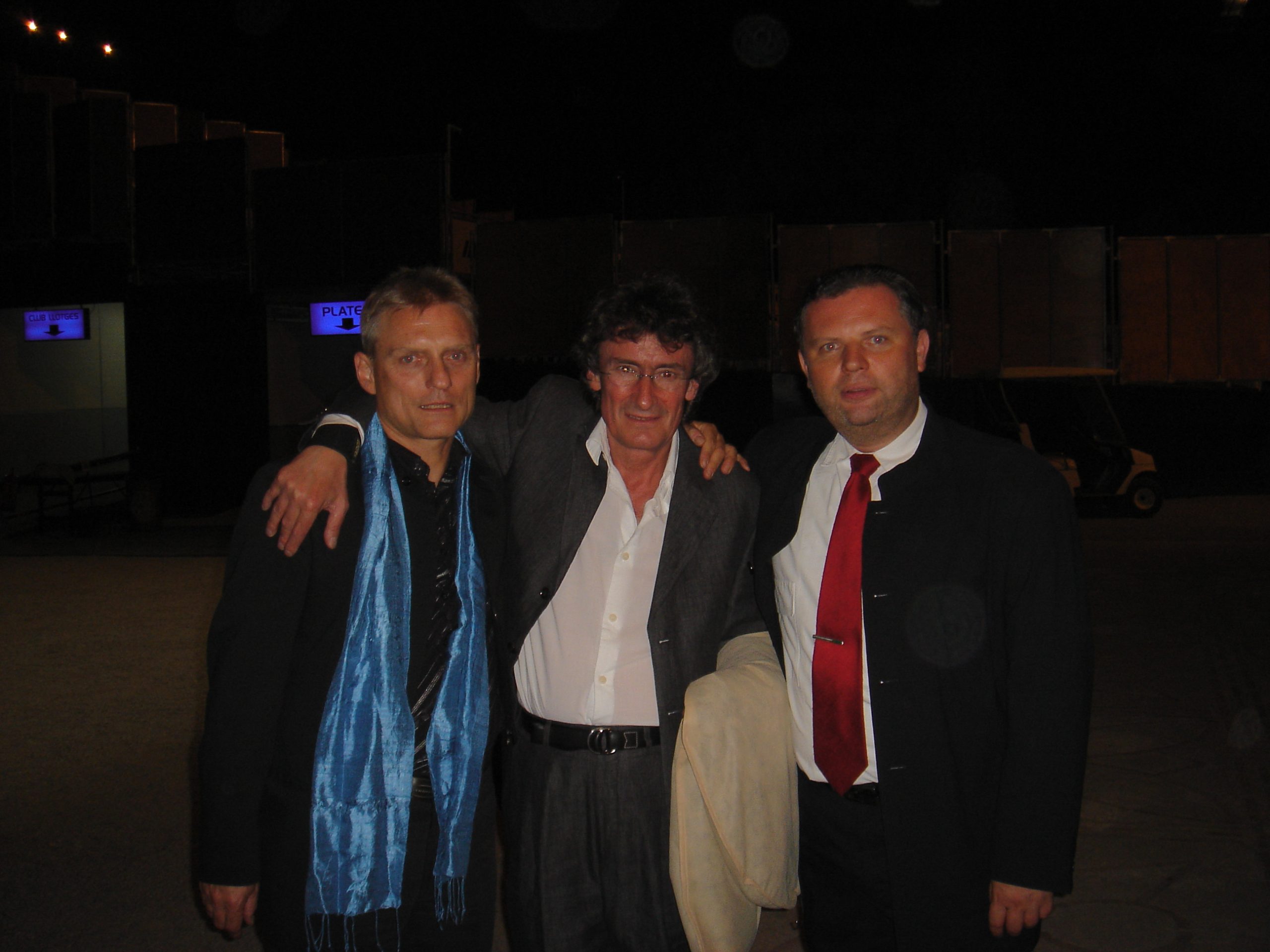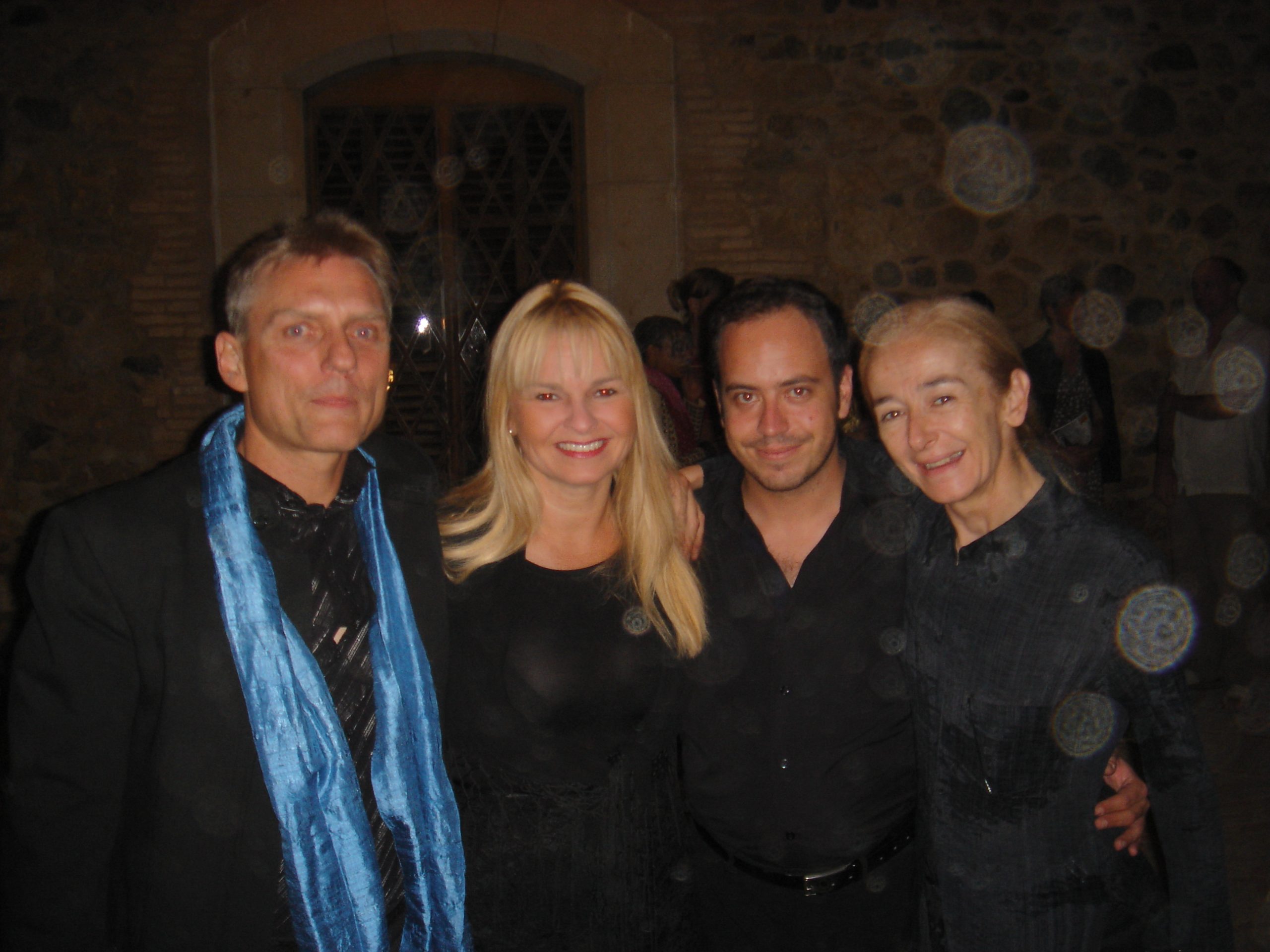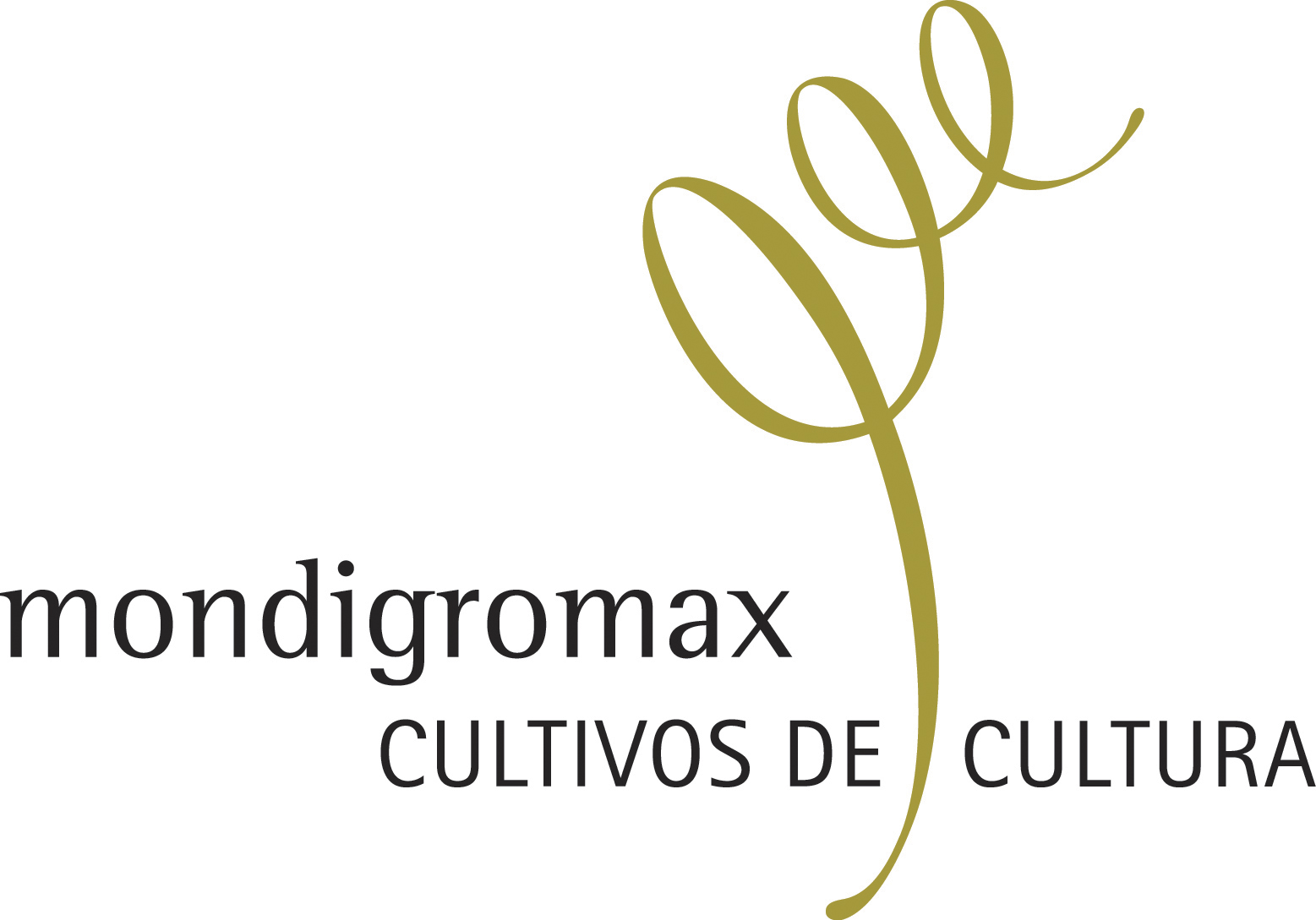Warsaw > Peralada
Salome
Teatr Wielki – Polish National Opera
Richard Strauss
Salome
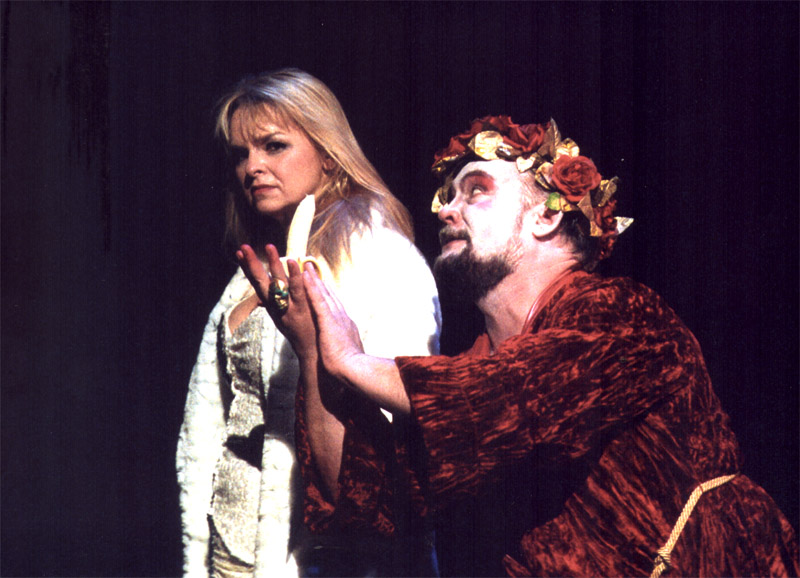
SALOME
Music drama in one act
Libretto after Oscar Wilde‘s tragedy
Music by Richard Strauss
Premiere of this production: June 25, 2004
Language: German
August 15, 2005
Teatr Wielki – Polish National Opera – Poland
Spanish premiere at Festival Castell de Peralada (Girona)
Musical drama based on the tragedy by Oscar Wilde. Its premiere in Dresden in 1905 was a great triumph, placing Strauss among the greatest opera composers of modern times. Today it is a classical piece of 20th-century music. The work’s atmosphere is permeated with an exuberant, almost obsessive eroticism that once caused scandal and protests.
A special role in Salome is played by the harmonics – filled with constant tension, at times crossing the boundaries of the existing tonal system, and by the instrumentation, requiring a huge orchestra of over 100 players, which originates from the spirit of Wagner’s work and develops it further still.
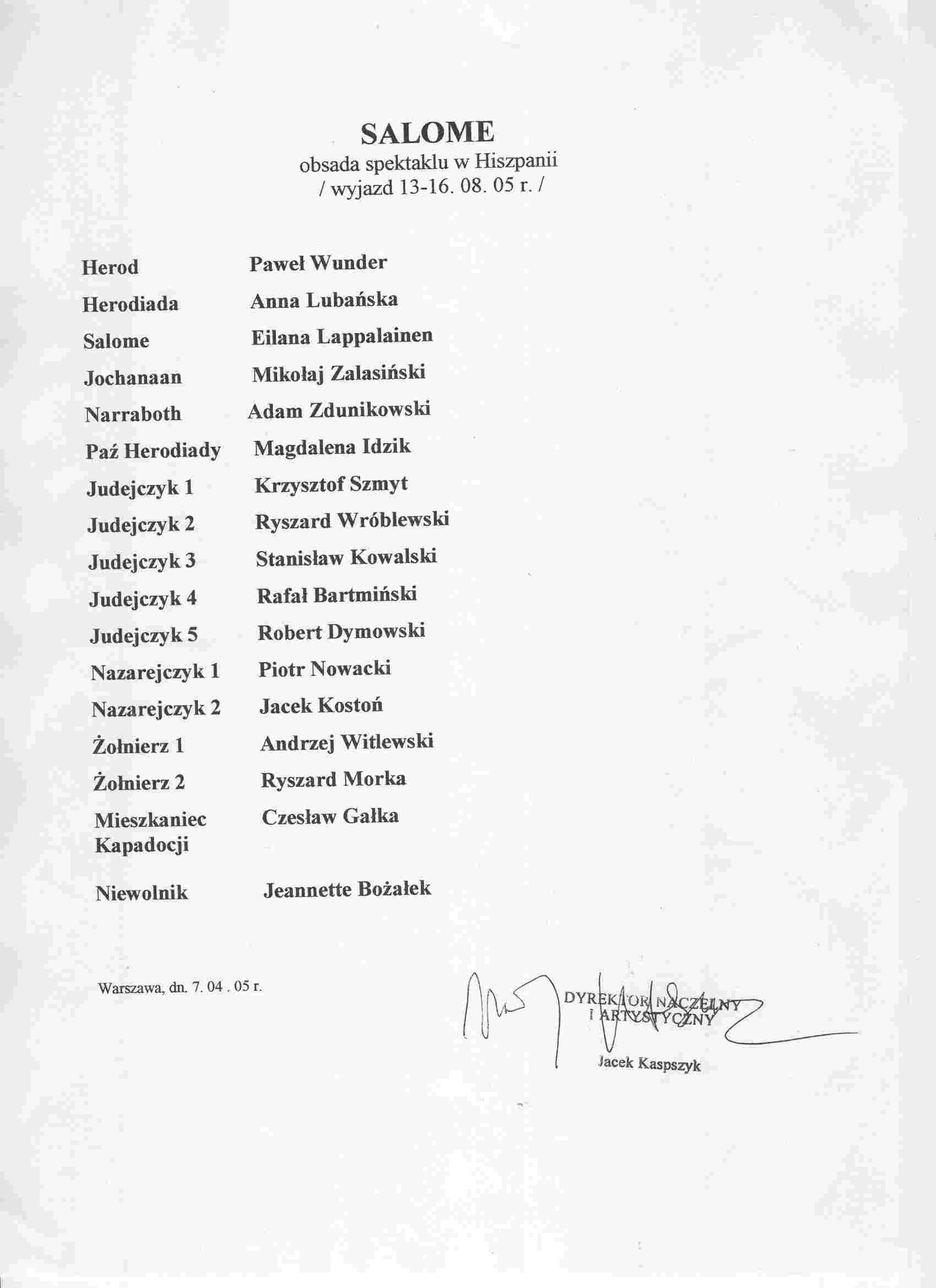
Performance organized by Mondigromax:
Richard Strauss, Salome
August 15, 2005
Teatr Wielki – Polish National Opera – Poland
Spanish premiere at Festival Castell de Peralada (Girona)
Conductor – Jacek Kaspszyk
Director – Martin Otava
Set Designer – Jan Zavarsky
Costume Designer – Dana Svobodova
Lighting Designer – Martin Otava
Choreography – Elwira Piorun
Cast:
Paweł Wunder (Herod), Anna Lubańska (Herodias), Eilana Lappalainen (Salome), Mikołaj Zalasiński (Jochanaan), Adam Zdunikowski (Narraboth), Magdalena Idzik (The Page), Krzysztof Szmyt (First Jew), Ryszard Wróblewski (Second Jew), Stanisław Kowalski (Third Jew), Rafał Bartmiński (Fourth Jew), Mieczysław Milun (Fifth Jew), Piotr Nowacki (First Nazarene), Jacek Kostoń (Second Nazarene), Andrzej Witlewski (First Soldier), Ryszard Morka (Second Soldier), Czesław Gałka (A cappadocian), Anna Karasińska (A Slave)
Finnish-Canadian soprano Eilana Lappalainen is one of the most internationally renowned interpreters of Richard Strauss’ “Salome“. Since her debut in 1996 (in the famous production by Johannes Felsenstein at the Anhaltisches Theater Dessau) she has appeared in this role in Seattle, New York, Nashville, Kentucky, Warsaw, Trieste, Mannheim, Tokyo, Kyoto, Kagoshima, Morioka, Nagoya, Kanazawa, Fukuoka, Kumamoto, Toyama, Katowice, Ottawa, Montreal, Winterthur, Detroit, Bergen, Michigan, Vilnius, Syros, New Israeli Opera, Lithuanian National Opera and Peralada Festival in Spain and Tel Aviv. In a review of the Seattle production, The Opera News praises: “Lappalainen’s extraordinary lightness and agility, the multifaceted nature of her voice and her sense of the complex character were deeply moving. (…) I have never had the “Dance of the Seven Veils” better seen (including the interpretations of Welitsch, Borkh and Stratas, probably the best Salome of all time in the Film).“
After: Eilana Lappalainen web page
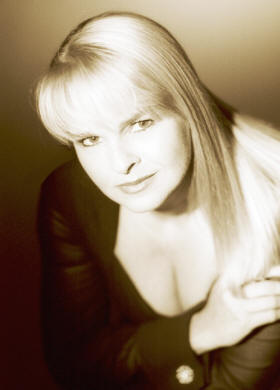
Press quote:
The role of Salome is a tremendous challenge for a soprano, who ideally should combine a Wagnerian weight of tone with a girlish quality. In 1930 Strauss reduced the orchestration so that a light soprano could sing the part. The 20-minute final aria moves from animal frenzy to a demented erotic yearning. Yet it is not only Salome’s obsession that Strauss presents with such calculated vividness. The religious zeal of Jokanaan is equally obsessive and is conveyed in music of lofty and noble quality. The music for Herod also brilliantly delineates the tetrarch’s personality: neurotic, superstitious, lascivious -a gift of a part for a character tenor. Whatever the mood in this opera, whether it be sultry, savage, sadistic or sensuous, Strauss finds the orchestral colours to convey it to the listener with overwhelming intensity. The New Penguin Opera Guide, Penguin Books, 2001
